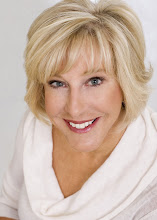Rituals are ceremonies carried on by groups of people who follow specific behaviors together, uniting them for some purpose—usually to one another as participants in the ritual as well as to the “purpose” or culture of the ceremony. Religious groups have historically littered their paths with rituals for all sorts of reasons. Ethnic groups often have rituals they observe. Families also develop rituals that have meaning (or not) for participants. My childhood was packed with rituals my parents created and which we practiced with seriousness and sincerity. The first cold night of the fall would mean we’d build a fire in the fireplace, place in it potatoes to be burnt to a crisp (although I doubt that was my parents’ intention), which we ate while my dad told stories about made-up creatures that thrived on tickling little kids. When we had a special occasion, we’d share a single artichoke by candlelight. To this day, I find artichokes quite out of place without candlelight. Do you recall rituals of your own childhood? What purpose did they serve in your family?
 Communities can also create rituals. In the years that I’ve lived in Old Town Alexandria, I’ve watched a series of Halloween-related rituals burgeon. Almost every house has some form of decoration—far more now for Halloween than for Christmas, as I experienced as a child. We have a day of trick-or-treating from one shop to another down our main street. We have one famous street that is mobbed with people in costume—and which has received so much press that locals don’t even think of attending anymore. And, of course, we have a dog Halloween costume contest—the highlight of this holiday’s rituals for dog owners and dog lovers—as well as people watchers.
Communities can also create rituals. In the years that I’ve lived in Old Town Alexandria, I’ve watched a series of Halloween-related rituals burgeon. Almost every house has some form of decoration—far more now for Halloween than for Christmas, as I experienced as a child. We have a day of trick-or-treating from one shop to another down our main street. We have one famous street that is mobbed with people in costume—and which has received so much press that locals don’t even think of attending anymore. And, of course, we have a dog Halloween costume contest—the highlight of this holiday’s rituals for dog owners and dog lovers—as well as people watchers.  Rituals play an important and positive part of holding a group of people together if they are authentic and participation is voluntary. Organizational rituals focused around birthday celebrations, promotions, babies, and departures can build connections—or they can build resentment or cynicism, depending on how healthy the organization’s culture is. If people trust and respect one another and don’t feel coerced into putting on happy faces for such events, organizational and team rituals can build a sense of camaraderie. If the core culture is unhealthy, rituals will not heal it. What are your organizational and team rituals? Do they accomplish the intended bonding? Or are they evidence of how wrong things are? Can you use them to help build a culture that is more open and collaborative? Rituals should be organic and positive, less about form (burnt potatoes) and more about substance (consistency). See what you can do to invent some. After all, it's the perfect time of year to notice rituals all around.
Rituals play an important and positive part of holding a group of people together if they are authentic and participation is voluntary. Organizational rituals focused around birthday celebrations, promotions, babies, and departures can build connections—or they can build resentment or cynicism, depending on how healthy the organization’s culture is. If people trust and respect one another and don’t feel coerced into putting on happy faces for such events, organizational and team rituals can build a sense of camaraderie. If the core culture is unhealthy, rituals will not heal it. What are your organizational and team rituals? Do they accomplish the intended bonding? Or are they evidence of how wrong things are? Can you use them to help build a culture that is more open and collaborative? Rituals should be organic and positive, less about form (burnt potatoes) and more about substance (consistency). See what you can do to invent some. After all, it's the perfect time of year to notice rituals all around.




No comments:
Post a Comment